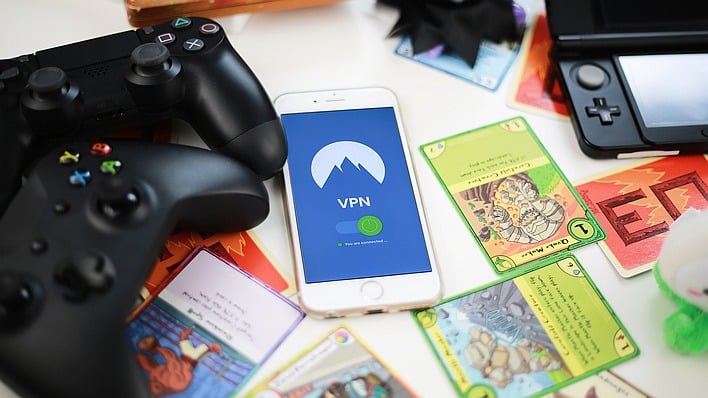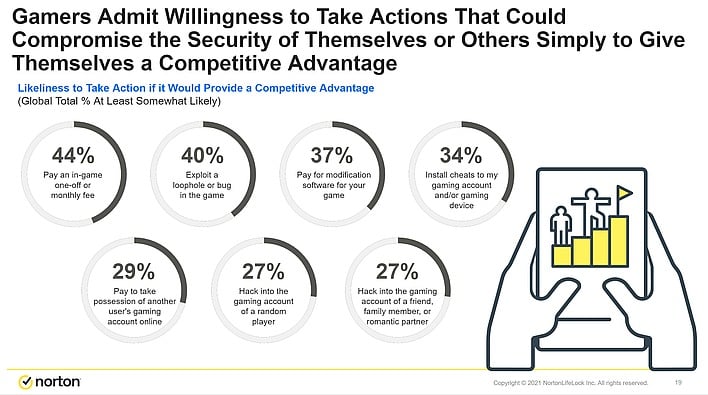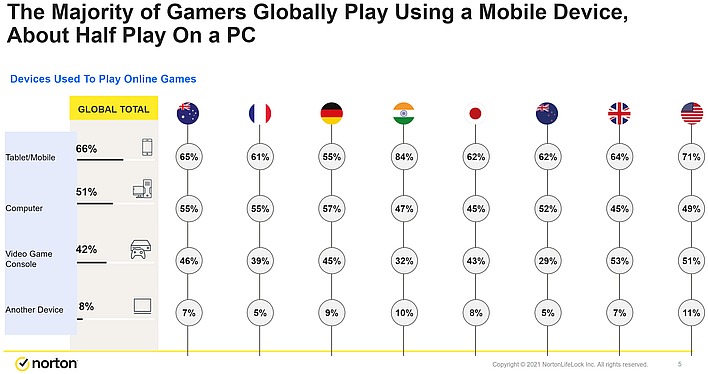Security Report Finds Cyber-Attacks Are Costing Gamers Big Money, Especially In These Titles

There's no denying that cybersecurity is a major concern for anyone on the internet. One wrong move can get your device infected with malware that can steal your personal data, corrupt or encrypt your precious, unreplacable files, and even worse, snatch your credentials. Even if you avoid malware, there's myriad other concerns, like data scraping, network attacks, and most commonly, social engineering efforts of which to stay advised.
Gamers, as online as we are, are a prime target for these cyber-attacks. If Norton is to be believed, we're falling for these scams on a regular basis, too. The company, which merged with Avast earlier this year, partnered with The Harris Poll to perform a survey of 5,327 adults across 8 countries, 702 of which were in the US. The survey targeted gamers specifically, and queried their cyber-security practices. Supposedly, we're in dire shape.
According to the survey, 46% of gamers surveyed have "experienced an attack to their gaming accounts or devices," and of those, 72% have "experienced financial loss" as a result. That's despite 62% of the same group reporting that they "would never fall for a gaming scam," and 46% of them saying "I don't think my gaming accounts will ever be hacked." Curiously, only 16% of respondents responded "Strongly Disagree" with the statement "I don't think my gaming accounts will ever be hacked," which doesn't line up very well with the report that 46% of gamers have already been attacked.
Norton certainly has a financial incentive to make gaming seem as scary as possible, given the services it sells, but 702 people really isn't a very large sample size relative to "all gamers." We're going to give Norton the benefit of the doubt and assume that the small sample size is the reason it came up with such, um, striking figures.
Along with the survey data, Norton gave Forbes a list of the top 10 games most likely to be exploited. In much the same way that heat maps of any given localized activity tend to be analogs to population density maps, the list more or less reads like a list of the most popular online games, but here it is:
- Grand Theft Auto V
- Minecraft
- Counter-Strike: Global Offensive
- Fortnite
- Call of Duty: Modern Warfare
- Battlefield 4
- League of Legends
- Diablo II: Resurrected
- World of Warcraft
- Valorant
Arguably the non-security data gathered by the survey is the more interesting part. Apparently, 66% of gamers surveyed play games on a tablet or mobile device, while fully half play games on a PC. Slightly less than that game on game consoles, and almost nobody play games anywhere besides those types of platforms. (Other opportunities might be in arcades, on "smart" devices, set-top boxes, and so on.) This might be a reflection of the platforms used to collect the survey data, though.
The survey also asked players to categorize themselves based on how they play games, although the math doesn't quite add up, so it seems players were able to put themselves in multiple categories. Some 62% of the people that The Harris Poll surveyed identify as casual gamers, while 35% said that they were new gamers, or fairly inexperienced. Just 21% of players surveyed called themselves "hardcore," but surprisingly 6% of players said that they are professional gamers that make money from playing and/or streaming games.
If you'd like to peruse Norton and Harris' survey data yourself, you can go to this page and click on "Global Report" to get the PowerPoint slides with the goods.



